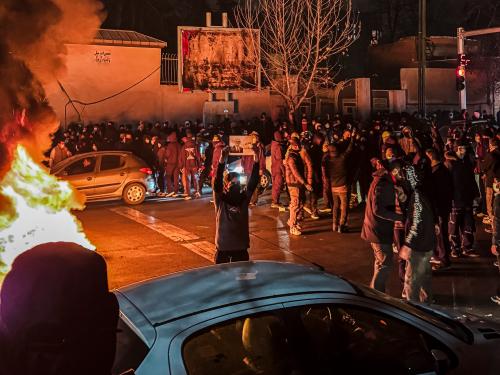

9:30 am EST - 11:00 am EST
Past Event
9:30 am - 11:00 am EST
1775 Massachusetts Avenue N.W.
Washington, DC
20036
On December 28, 2017, demonstrators took to the streets of Mashhad, Iran to protest rising prices and economic stagnation. Protests have since spread rapidly throughout the country, including Tehran, and the rhetoric of demonstrators has turned sharply critical of the Islamic Republic and its leadership. As the government cracks down and reports of arrests and violence grow, Iran appears to be facing one of its most serious crises since the 1979 revolution. The unrest comes on the eve of a crucial deadline in Washington for extending sanctions relief as required by the 2015 nuclear deal with Iran.
On January 5, the Center for Middle East Policy at Brookings hosted a discussion on the upheaval in Iran, what it means for the future of the country, and how the United States and the international community can respond. The conversation featured journalist and filmmaker Maziar Bahari, the author of “Then They Came for Me”, which was later turned into the 2014 film “Rosewater,“ and the founder of IranWire, which has been a vital conduit for Iranian citizen journalists. Bahari was joined by Suzanne Maloney, the deputy director of Brookings’s Foreign Policy program and a senior fellow in the Center for Middle East Policy. Susan Glasser, chief international affairs columnist at Politico, moderated the discussion. Following the conversation, the panelists took questions from the audience.


Melanie W. Sisson, Daniel S. Hamilton, Douglas A. Rediker, Aslı Aydıntaşbaş, Vanda Felbab-Brown, Ryan Hass, Jeffrey Feltman, Patricia M. Kim, Stephanie T. Williams, Steven Pifer, Pavel K. Baev, Anand Menon, Andrew Yeo +8 more
February 2, 2026

Ryan Hass, Allie Matthias
January 27, 2026

Aslı Aydıntaşbaş, Mara Karlin, Suzanne Maloney
January 22, 2026